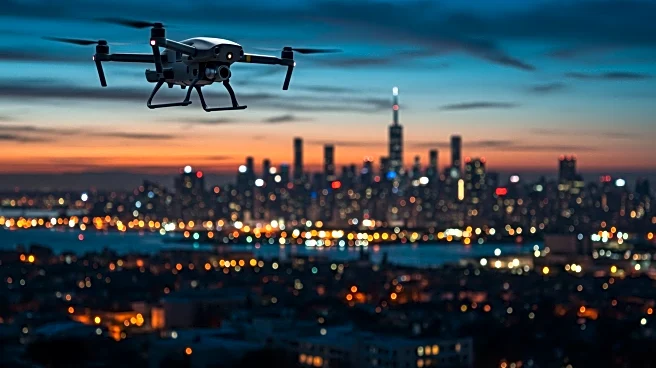What's Happening?
Delhi Police Commissioner S B K Singh emphasized the importance of self-reliance, technology utilization, and healthy competition during the Independence Day celebrations at the Delhi Police headquarters. Singh urged the force to align with Prime Minister Narendra Modi's vision by focusing on these three areas. He directed the police units to develop proposals within 15 days to achieve self-reliance, reducing dependency on external units for resources like commandos and bomb disposal squads. Singh highlighted the need for further technological advancements in surveillance systems, cybercrime prevention, anti-drone technology, and counter-terrorism efforts. He instructed technology-related units to form committees and conduct studies to enhance technological use within a month. Singh also stressed the importance of fostering healthy competition and advised police personnel to shift from a feudalistic mindset to a service-oriented approach to improve public trust.
Why It's Important?
The initiatives outlined by Commissioner Singh are crucial for modernizing the Delhi Police force and improving its efficiency and public perception. By focusing on self-reliance, the police can become more autonomous and responsive, reducing delays and dependencies that may hinder operations. The emphasis on technology is vital for addressing contemporary challenges such as cybercrime and terrorism, ensuring the police remain equipped to handle complex situations. Promoting healthy competition within the force can lead to improved performance and morale, fostering a more collaborative and effective work environment. These changes aim to enhance public trust, which is essential for effective law enforcement and community relations.
What's Next?
The Delhi Police units are expected to submit proposals for self-reliance within 15 days, while technology-related units will present their plans within a month. These steps will likely involve consultations with experts and stakeholders to identify best practices and technologies suitable for implementation. The focus on healthy competition may lead to new training programs and initiatives to encourage collaboration and innovation among police personnel. As these changes are implemented, the public's response and trust levels will be closely monitored to assess the impact of these initiatives.
Beyond the Headlines
The shift from a feudalistic mindset to a service-oriented approach represents a significant cultural change within the Delhi Police. This transformation could lead to more empathetic and community-focused policing, improving interactions between the police and the public. The emphasis on technology may also drive long-term investments in digital infrastructure and training, positioning the Delhi Police as a leader in modern law enforcement practices.










